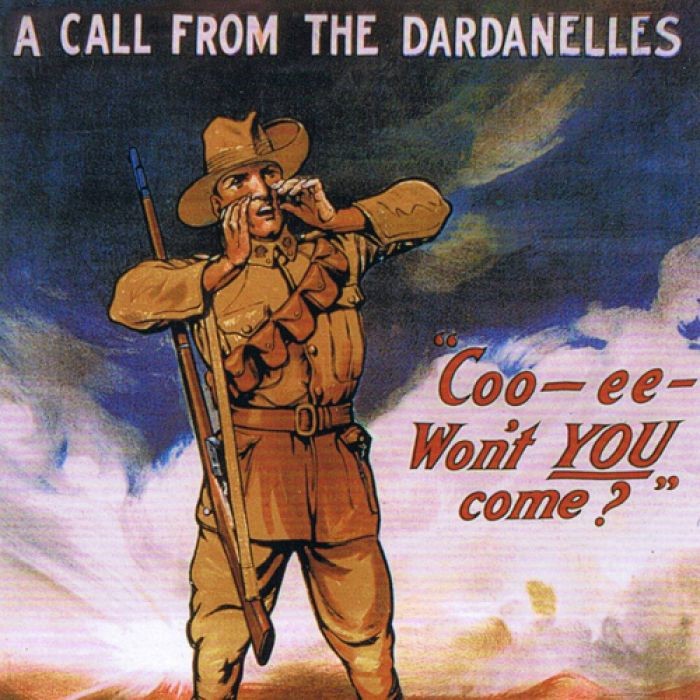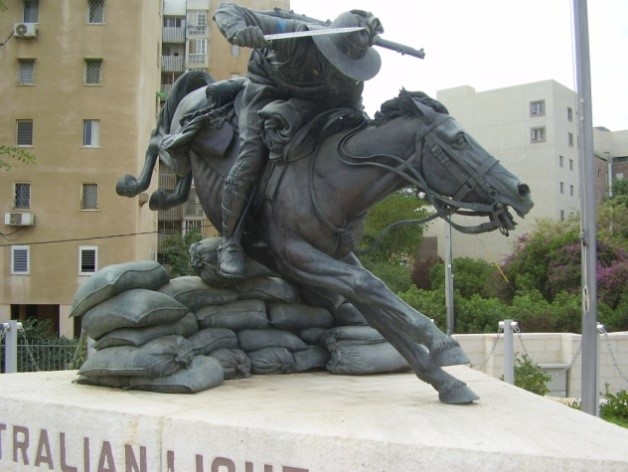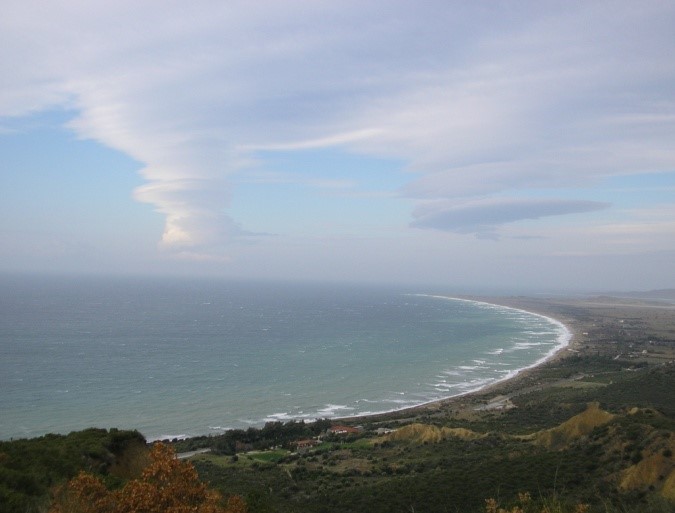From a population of less than five million at the time, Australia had 416,809 men voluntarily enlist in World War I. Of these, 332,000 served overseas. Over 60,000 died and 156,000 were wounded, taken prisoner or gassed. From the total, 32,000 men and 40,000 horses participated in the Palestinian campaign which claimed 1,394 dead from injuries or disease and 4,851 wounded.1 New Zealand had a population of just over 1 million in 1914. They lost 18,000 men in World War 1 with another 40,000 wounded. Of 250,000 eligible men, 120,000 enlisted and 100,000 served overseas.2
 This costly sacrifice wounded the heart of the young nation. Practically every family was affected, and everyone knew someone who went to war. While we must never forget those who laid down their lives in service for their country and king, we need to also remember with pride the accomplishments of those who courageously achieved their goals and placed their mark on history. We currently remember the losses, but now we need to celebrate the victories also. The nation needs to come out from ‘down under’, with its victim mentality from our convict past, and embrace the future of her glorious destiny.
This costly sacrifice wounded the heart of the young nation. Practically every family was affected, and everyone knew someone who went to war. While we must never forget those who laid down their lives in service for their country and king, we need to also remember with pride the accomplishments of those who courageously achieved their goals and placed their mark on history. We currently remember the losses, but now we need to celebrate the victories also. The nation needs to come out from ‘down under’, with its victim mentality from our convict past, and embrace the future of her glorious destiny.
The nation needs to come out from ‘down under’, and embrace the future of her glorious destiny.
Achievements
The ANZAC Horsemen in the Middle East:
- Achieved what Gallipoli failed to do. They defeated the same Turks who had defeated them at Gallipoli.
- The success of the Allied troops in the Middle East caused the collapse of the Ottoman Empire. The ANZAC horsemen and their horses were the winning combination that brought the breakthrough and spearheaded much of the campaign, especially through the Sinai and in the latter days of the campaign.
- Put Australia and New Zealand on the world map.
- Earned the respect even of their enemies, the Turks and Germans. They were well-liked by the French, the Jews in Israel and even the oppressed Arabs throughout the Middle East.
This is the other side of Gallipoli that we rarely hear about and is rarely taught in our schools. Together we can change this.
We remember our losses; why not celebrate our victories?
A generation of young, simple, tough country boys changed history. We have much to be proud of and the nation needs to know about this and begin to celebrate it. Do you agree? We have an opportunity in the next two years to bring that to fruition. Is there another generation of young, committed men and women who will sacrifice all to serve the country to again change history and bring Australia and New Zealand into their destiny?
Significance of what the ANZACs did
 Without knowing it, the ANZACs from the ends of the earth were entering territory that has a mighty prophetic destiny and they were to become entwined in unfurling the future. The British and Allied troops peeled back a layer of history that had lain over the land for almost 1,300 years. Except for a brief period during the Crusader period, various Muslim armies had ruled over Jerusalem, but never made it their capital or developed it as a city. After 400 years of Turkish Ottoman rule, the lands were liberated. Jews, Christians and the local Arabs rejoiced at that. The restoration of the land to British hands was crucial to the formation of the nations of Israel and Jordan, and also Syria, Lebanon, Iraq and modern Turkey.
Without knowing it, the ANZACs from the ends of the earth were entering territory that has a mighty prophetic destiny and they were to become entwined in unfurling the future. The British and Allied troops peeled back a layer of history that had lain over the land for almost 1,300 years. Except for a brief period during the Crusader period, various Muslim armies had ruled over Jerusalem, but never made it their capital or developed it as a city. After 400 years of Turkish Ottoman rule, the lands were liberated. Jews, Christians and the local Arabs rejoiced at that. The restoration of the land to British hands was crucial to the formation of the nations of Israel and Jordan, and also Syria, Lebanon, Iraq and modern Turkey.
Not only in World War I, but also in World War II and the second Gulf War, the ANZAC troops broke through, defended and protected Israel. In World War II ANZAC troops played a significant part in the defeat of Rommel’s army at El Alamein, in Egypt, stopping them from attacking Israel from the south. In the first few days of the 2003 Gulf War the Australian SAS troops were deployed to dismantle the missile launchers in the Western deserts of Iraq thus preventing Scuds being fired into Israel. Our soldiers have also served as part of the United Nations’ peace-keeping forces in the area. Our two ANZAC countries are bound together in a common heritage and future shared destiny.
The Destiny of Nations
It is impossible to talk about the nation of Israel without reference to the Bible as this holy book records the past history of the nation and foretold the nation’s dispersion amongst the nations for disobedience to the laws written in this book. It also prophesied the nation’s eventual return to its land and its future place amongst the nations of the world. For the Jews, God had promised that the people would be returned to the land of their forefathers, the mountains of Israel.3 God’s purpose for the captured land was so the Jews exiled in the nations would have a place to return to. Thus, the Gentile nations played a significant role in the creation of the Jewish state.
According to this sacred book, God’s calling for the Jewish people is to be a light to the nations4, the destiny of the city of Jerusalem to be a House of Prayer for all people5 and the throne of the Prince of Peace6 who will rule the nations in righteousness, and the destiny of Beersheba to be a place where Jew and Gentile can form a covenant to dwell together in peace7.
What of our ANZAC nations?
Author and respected ANZAC researcher, Kelvin Crombie, unearthed a comment by Sir Winston Churchill from Churchill’s book The World Crisis (New York, 1949), where he says in relation to the Gallipoli campaign:
From the uttermost ends of the earth ships and soldiers are approaching the eastern Mediterranean in fulfillment of a destiny as yet not understood by mortal man…the arrival of the Anzacs in Egypt created the nucleus of the army ready to attack the heart of the Turkish Empire.8
What did Churchill have in mind by this destiny? What would unfold that was beyond man’s current understanding? What part did the arrival of the ANZACs have to do with this? What was the connection between the attack on the Turkish Empire and destiny?
Kelvin says:
Could it be that these words 'in fulfillment of a destiny as yet not understood by mortal man' relate to a component of this campaign that has hitherto been concealed from most Australian and New Zealanders? That hidden component could actually be the restoration of Israel. Indeed, the Gallipoli campaign played a very significant role in bringing about the ultimate formation of a Jewish State in the land of Israel.9
The engagement of the British forces against the Turkish Empire which failed at Gallipoli was reversed in the Middle Eastern campaign. They were the same armies that the Allies fought on different territory. Perhaps there was a divine plan that most of the soldiers did not understand at the time, as Churchill suggests. Could it be that the young nations of Australia and New Zealand were born at this late stage in history at the ends of the earth to be midwives to birth Israel again in her ancient land?  Is our destiny to be a protector of Israel in the end times as Egypt was in the formation of the nation 4,000 years ago? She is under threat now from all sides, militarily, economically and politically. Would we as ANZAC nations stand by and now abandon the land we helped liberated and assisted to birth? As Kelvin says, the road from Gallipoli led to Jerusalem. If there is a divine plan, it would be very wise to align with it and not fight against it, for those that try to shift the heavy stone will be crushed by it.10
Is our destiny to be a protector of Israel in the end times as Egypt was in the formation of the nation 4,000 years ago? She is under threat now from all sides, militarily, economically and politically. Would we as ANZAC nations stand by and now abandon the land we helped liberated and assisted to birth? As Kelvin says, the road from Gallipoli led to Jerusalem. If there is a divine plan, it would be very wise to align with it and not fight against it, for those that try to shift the heavy stone will be crushed by it.10
As we approach the centenary of the Middle Eastern campaign, let us lift up our heads, celebrate our victories, honour those served and gave their lives on foreign soils to bring freedom to others, and walk into our destiny. It will require courage, perseverance, sacrifice and standing together to resist the flood of world opinion. The ANZAC values shaped our nation and these will determine our future also. The pillar of cloud that appeared in the sky at Suvla Bay at Gallipoli on our trip reminded us of the pillar of cloud that led the Israelites through the desert and into their Promised Land. May we also be so led to follow the right path into our destiny.
Endnotes:
- https://www.awm.gov.au/atwar/ww1/
- http://www.nzhistory.net.nz/war/first-world-war
- Jeremiah 30:3, Ezekiel 34:13-14, 38:8
- Isaiah 42:6, 49:6, 60:3
- Isaiah 56:7
- Isaiah 9:6-7, Isaiah 2:1-4, Zechariah 14:4-9
- Genesis 21:22-34
- Crombie, K., Gallipoli, the Road to Jerusalem, Heritage Resources, 2014, xii
- Crombie, K., Anzacs & Israel, A Significant Connection, West Print Management, 2010, 4-5
- Zechariah 12:3
Pictures:
- Call from the Dardanelles – Australian War Memorial AWM ARTV05167 Recruitment poster created by H M Burton, for The Defence Department of the Commonwealth
- Peter Corlett’s statue in the Park of the Australian Soldier, Be’er Sheva Israel – Jill Curry
- Pillar of cloud over Suvla Bay, Gallipoli – Jill Curry

